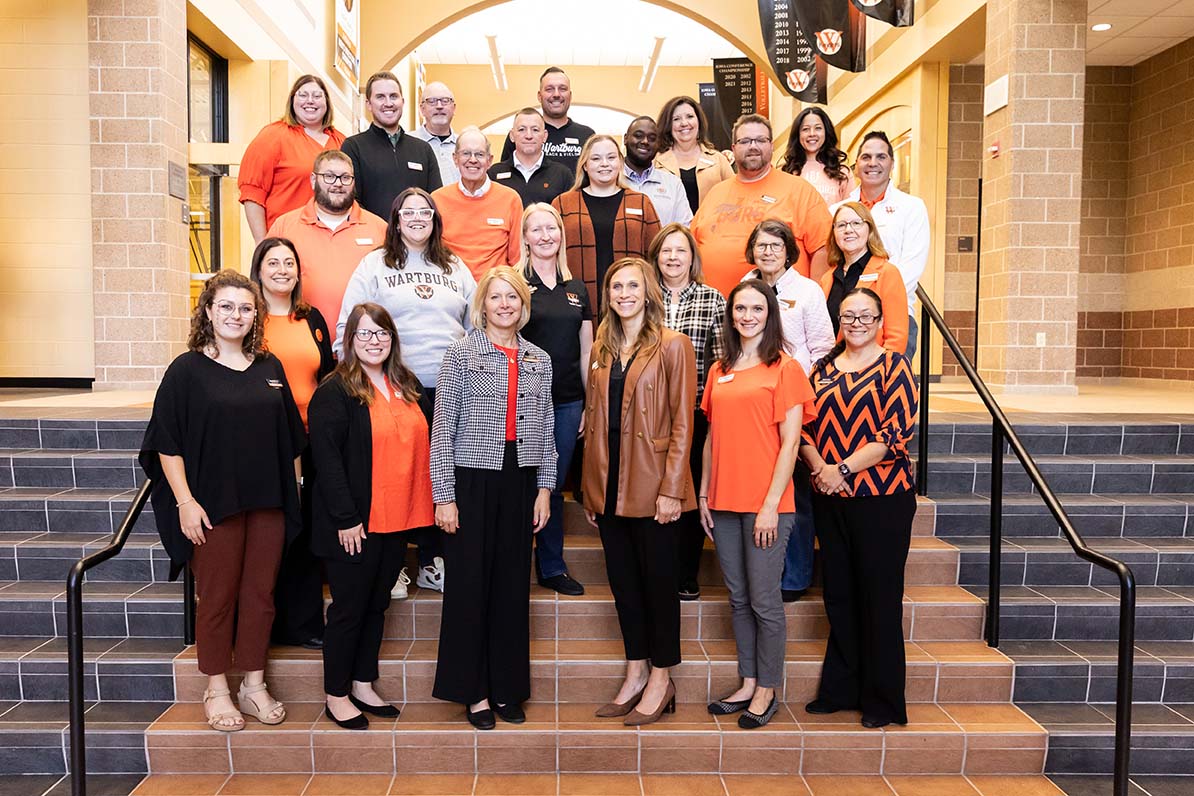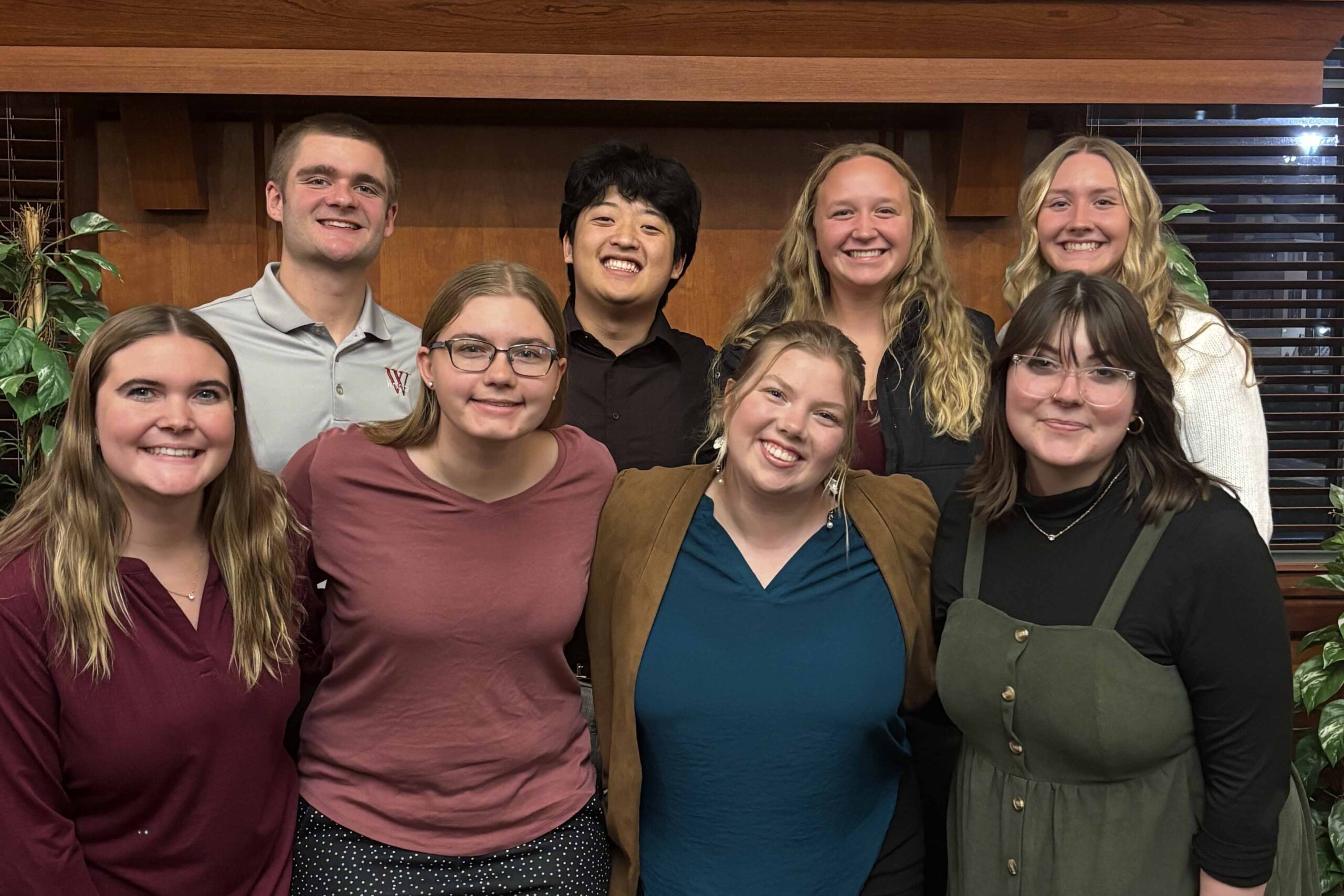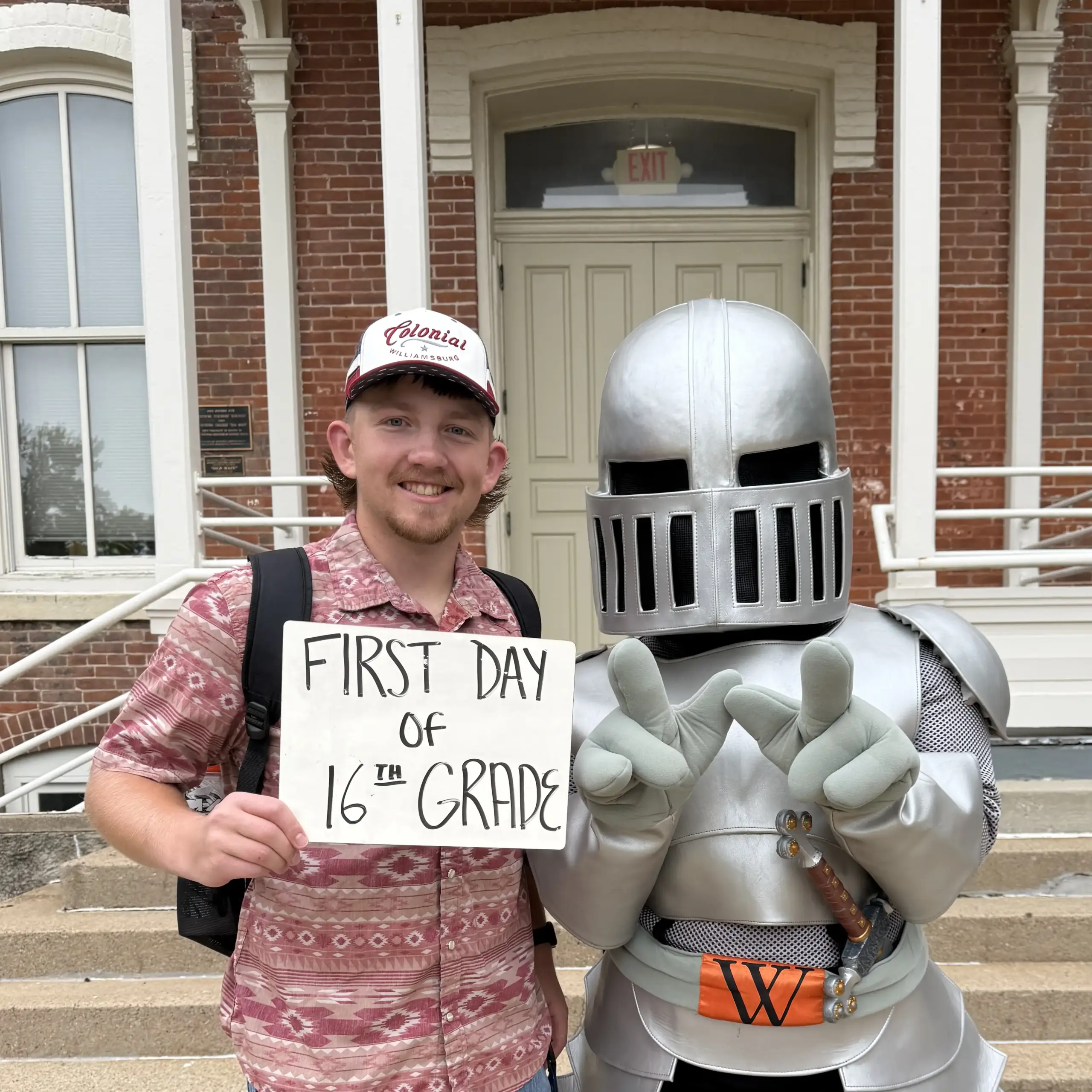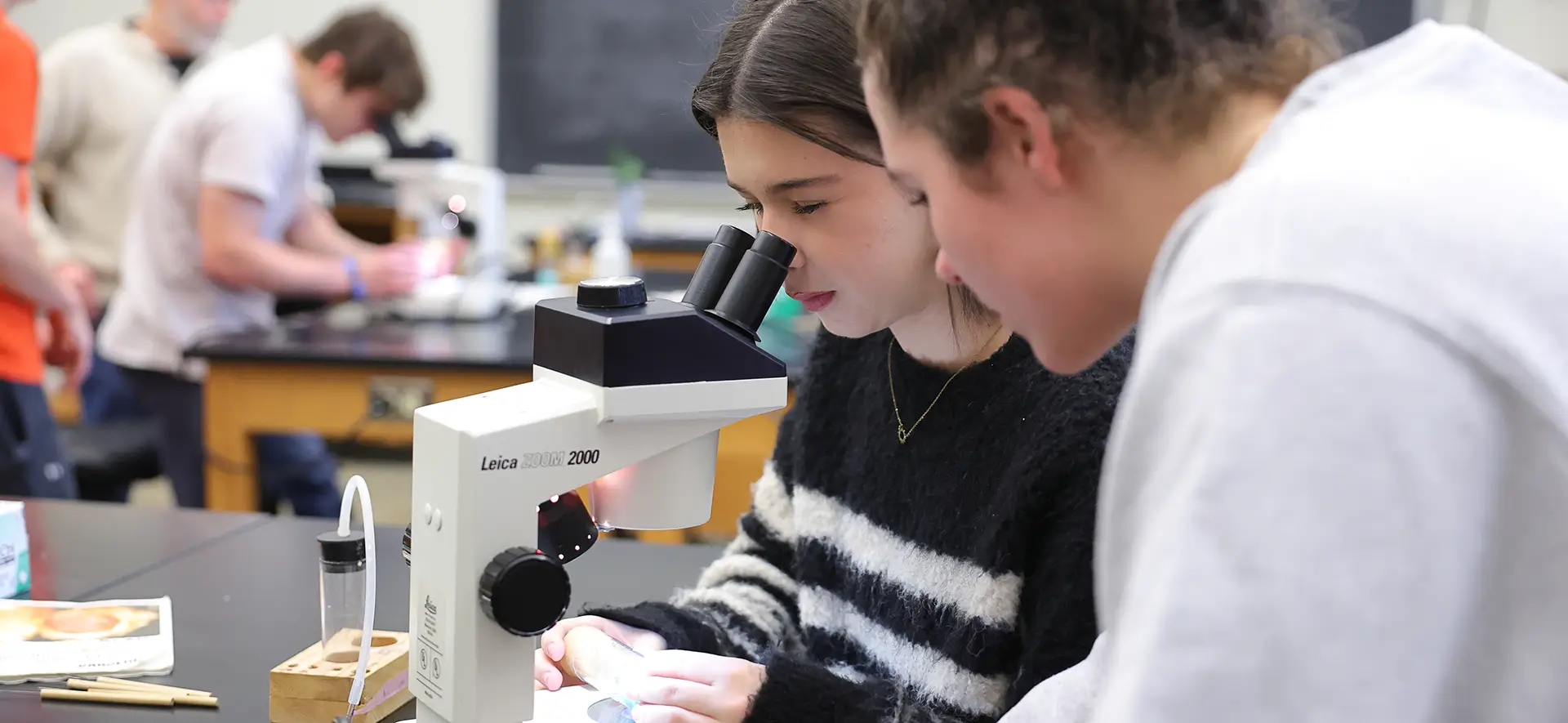
Neuroscience
Neuroscientists study how the brain and nervous system work. If you’re interested in why people or animals do what they do, how they do it, and what happens when those processes go awry, neuroscience may be the field for you.
Neuroscience is an interdisciplinary major that exposes students to the intersection of biology and psychology and then encourages them to make links to other areas of interest. Because neuroscience is a broad field, students majoring in it at Wartburg have the opportunity to focus on their own areas of interest through advanced research courses and diverse electives.
Neuroscience majors can pursue careers in neuroscience research, medicine, physical therapy, occupational therapy, psychiatry, pharmacology, cognitive psychology, robotics, science writing, and many, many more fields.
Students in pre-health programs who are double majoring in Spanish will have the opportunity to participate in a unique Spanish for Health Professions program at the University of Oviedo, Spain, which includes an advanced Spanish for Health Professionals course and a one-week clinical field experience in Oviedo at the end of the course.
Diverse
Animal Facilities
Our animal facility regularly houses mice, hamsters, and zebrafish. A surgery room allows for hormonal manipulation through removal of ovaries or testes, and behavioral testing rooms are outfitted with a number of experimental apparatuses, including a Morris Water Maze, Elevated Plus Maze, and radial arm maze. A fruit fly colony provides the opportunity to work with an invertebrate model with known genetics.
State-of-the-art
Equipment
Wartburg has a cryostat for thinly slicing brain tissue and a variety of microscopes (scanning electron, confocal, and fluorescent in addition to standard compound and light microscopes) for looking at stains of tissue. Cell culture facilities and related tools allow for investigating other cellular questions. Hormones can be quantified by running the products of an ELISA on Wartburg’s plate reader. Real-time PCR and electrophoresis allow for interpretation of genetic information. Additional equipment allows quantification of human physiological data, including EMGs, EEGs, and electrodermal activity.
Access to
Natural settings
Wartburg manages nearby Lageschulte Prairie, operates a greenhouse in the Science Center, and is close to several city and state parks that allow for examination of behavior in more natural settings.
Department Information
Experience more at Wartburg.
- Incredible opportunities are available for both on-campus and off-campus field and lab research experiences in biology.
- Hands-on projects are an integral part of the courses throughout your four years.
- Most biology majors conduct independent research under the guidance of a faculty member.
- Small-college environment with more personal attention and greater opportunities to excel without the pressure of impersonal large classes.
- Wartburg faculty teach ALL classes, unlike larger colleges and universities
Wartburg professors, specifically Dr. Larimer, have really been a great resource for me. She rallied my passion for neuroscience and has given me a mentor and someone to model my own future after.”
Rachel Bender ’25
Graduate Student, College of Veterinary Medicine, University of Illinois
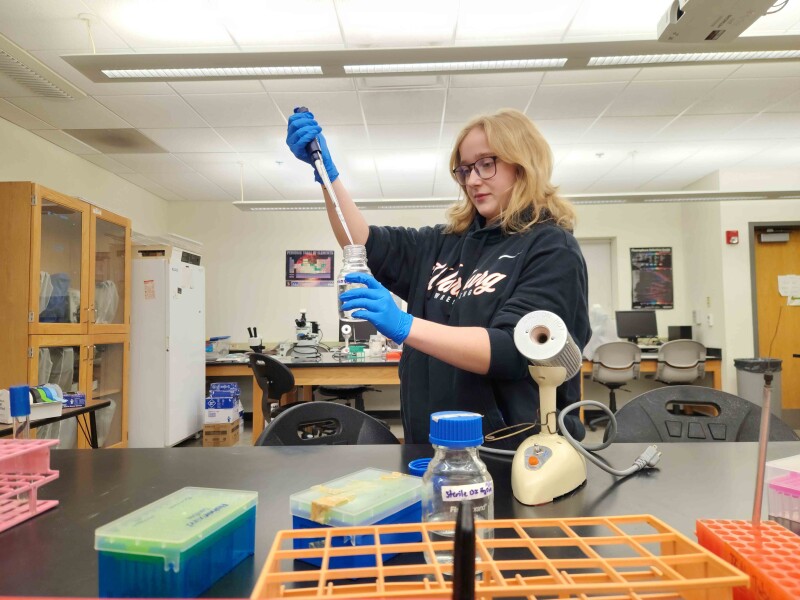
Ready for more?

